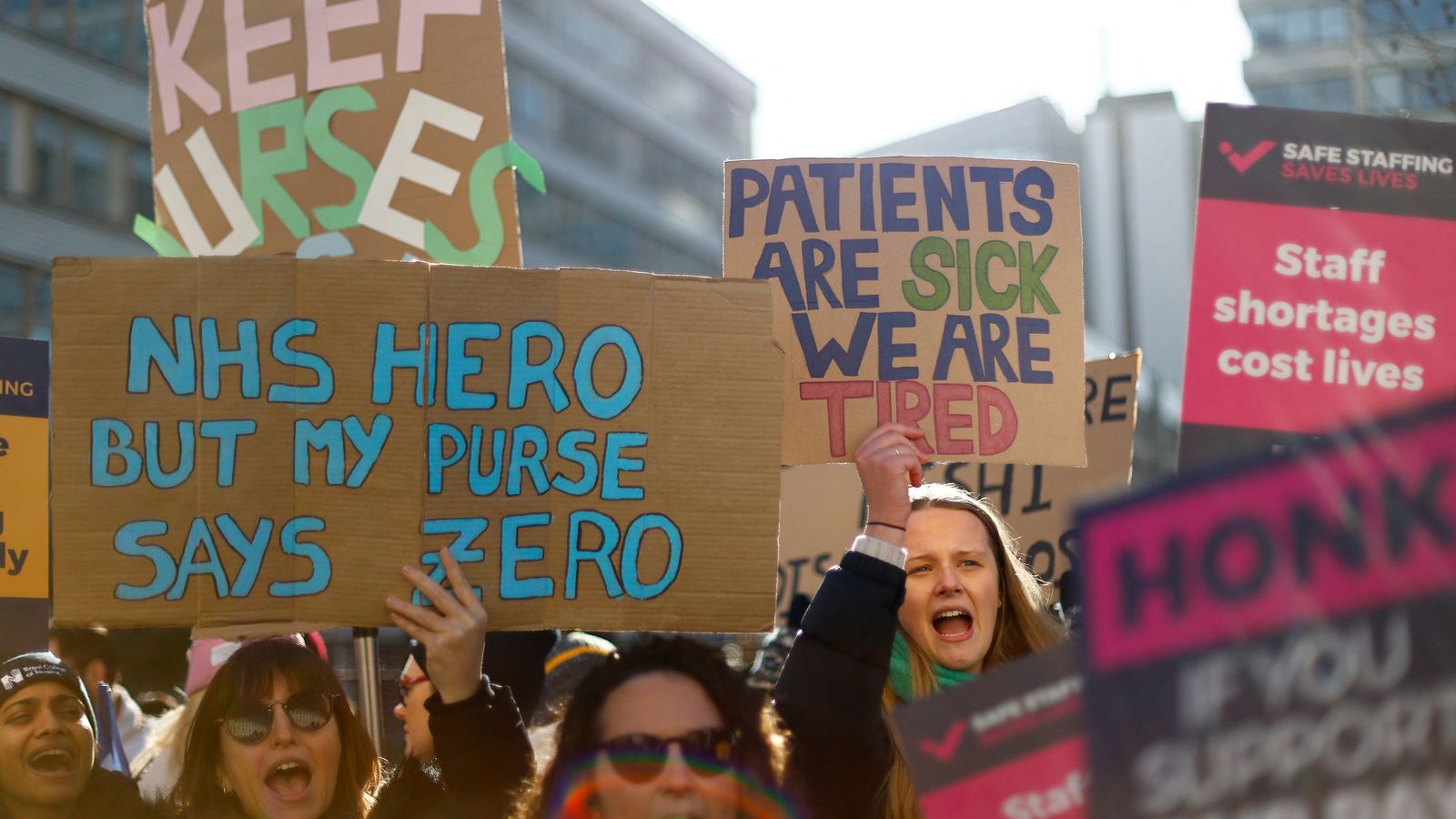Nurses in Scotland have voted to accept a new NHS pay offer but have warned that strike action is not entirely off the table.
A consultative ballot put to Royal College of Nursing (RCN) members in Scotland on 28 February ended on Monday at 9am with 53.4% voting to accept the offer.
Scottish midwives represented by the Royal College of Midwives (RCM) also voted in a ballot, with 49% of their members taking part and 69% of them voting to accept the deal.
Last week, Unison and GMB unions also voted to accept the offer.
The offer by the Scottish government involves £568m to fund a pay rise for NHS staff, including nurses and midwives, next year for an average 6.5% increase in the 2023/24 financial year.
As well as the pay rise, staff will receive a one-off payment of between £387 and £939 this year.
The RCN had warned of more strikes if members voted against the deal.
NHS strikes: Junior doctors and government to enter talks after 72-hour walkout
Where will the money for a 5% pay deal come from in an underfunded NHS?
NHS pay rises will cost £4bn and will be funded from ‘areas of underspending’, govt says
Read more: Who is striking and when?
With just over 50% of eligible members participating in the nurses’ ballot, and only 53.4% of them voting in favour, the RCN acknowledged that a “significant minority” voted to reject the offer.
It called this a “demonstration of your continued frustration and concern about the nursing workforce crisis facing Scotland’s NHS”.
Strike action is not entirely off the table, however, as RCN Scotland said it is considering the detail of the pay offer for NHS staff in England and the implications for pay in Scotland, if it is accepted.
Health is a devolved matter so each UK nation is responsible for its own NHS funding.
If an offer in England results in additional funding coming to the Scottish government for NHS pay for the current 2022/23 year the union said it “will immediately demand that the Scottish government act on the re-opening clause agreed with the RCN as part of the roadmap to dispute resolution”.
Please use Chrome browser for a more accessible video player
Colin Poolman, director of RCN Scotland, said: “This is not the end, we will continue the fight for fair pay and safe staffing.
“The Scottish government should be under no illusion; much more is required for nursing staff to feel valued and to ensure Scotland has the nursing workforce it needs.
“They must live up to their promises.
“The Agenda for Change framework must be modernised to recognise the clinical skills and expertise of nursing staff and further improvements to pay, terms and conditions are needed in the years ahead.”
Be the first to get Breaking News
Install the Sky News app for free
Julie Lamberth, chair of the RCN Scotland’s board, said “the chronic staff shortages and low morale that led to the strike mandate are still very real”.
She urged the incoming first minister to listen to nurses and recognise their contribution.
Jaki Lambert, RCM director for Scotland, said: “This is a good offer that gives our members most of what they had been asking for, including an above-inflation pay award and a commitment to reform of NHS pay bands.”
She said the disagreement was also about midwives feeling seen and valued, and most importantly “being prepared to take action to ensure better care for women, babies and their families”.
Please use Chrome browser for a more accessible video player
In January, Scottish RCN nurses paused strike action after the government made an offer, which was then put to members.
At the end of February, further nurses strikes in England were paused as RCN leaders got around the table with government ministers.
On 16 March, ministers offered a new deal on nurses pay and conditions in England as well as a one-off payment for the current financial year.
RCN England members are currently being balloted on the deal.






















